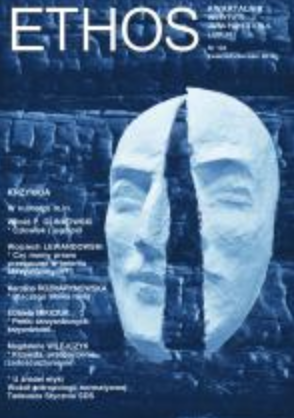„MY” I „ONE”. Szowinizm gatunkowy w kontekście badań psychologicznych nad relacjami międzygrupowymi
‘Us’ and ‘Them’: Speciesism, as seen in the context of Psychological Research on Intergroup Relations
Author(s): Julia Sikorska, Maciej TrojanSubject(s): Christian Theology and Religion, Ethics / Practical Philosophy
Published by: Katolicki Uniwersytet Lubelski Jana Pawła II - Instytut Jana Pawła II, Wydział Filozofii
Keywords: speciesism; intergroup relations; comparative psychology; empirical psychology
Summary/Abstract: Non-human animals are ubiquitous in our lives and receive various treatment from humans. Some of them enjoy the status of pets and are surrounded with love and care, while others are considered as pests, and thus exterminated or mistreated. There are also animals used in industrial farming and killed for meat and skins; others are used for medical experiments so that new cures for illnesses can be found; still others are used for amusement or entertainment. Despite the interactions between humans and animals relations between the human being and other species have been examined by psychologists only for a short time now. The present article comprises a survey of the psychological research on speciesism, a phenomenon widely discussed by philosophers, but still relatively new to psychology, although this discipline makes it possible to empirically verify the intellectual constructs provided by the humanities. The tendency to social categorization—classifying humans and other animals into groups—affects the way we perceive others. If we perceive members of our own group as unique individuals who share merely few traits, whereas we tend to believe members of a stranger-group to be alike in the respect of their characteristic traits, we inevitably favor our own group and consider it as ‘better,’ simultaneously homogenizing the stranger-group, developing a bias against it, discriminating it, and using stereotypes in thinking and talking about it. For years, intelligence, the use of language and certain emotions were considered as traits distinguishing human beings from non-humans. Yet the growth of the knowledge of the traits and abilities of other species makes us revisit these aspects, as well as the issue of the relations between humans and other animals.
Journal: Ethos. Kwartalnik Instytutu Jana Pawła II KUL
- Issue Year: 31/2018
- Issue No: 2
- Page Range: 161-179
- Page Count: 19
- Language: Polish
- Content File-PDF

